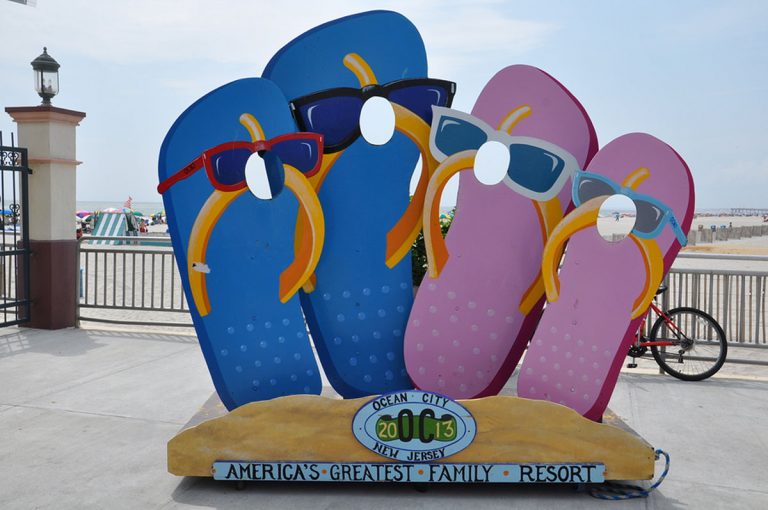Jersey Shore towns already discussing pot store prohibition
As New Jersey lawmakers hold hearings on whether to legalize recreational marijuana, some municipalities are taking steps to keep dispensaries from setting up shop.

Should New Jersey legalize recreational pot, Ocean City will likely bar marijuana shops from setting up shop. (Big Stock photo)
While the New Jersey Legislature holds hearings on whether to legalize recreational marijuana in the Garden State, officials in a number of Jersey Shore towns are already discussing whether they might ban pot stores in their communities.
Some have already voted in opposition to legal marijuana, while others have just started reviewing their options.
Under a bill introduced by state Sen. Nicholas Scutari, D-Union, towns would be able to prevent dispensaries within their borders. But the towns would have to decide within one year after the bill is approved whether to ban retail sales. Otherwise, they would have to wait five years to act, if the bill is approved as proposed.
The bill has seen some resistance from Republicans and some Democrats, and on either side, indications are it could be a tight squeeze. Gov. Phil Murphy has indicated he’ll sign it if it reaches his desk.
Even if the state approves recreational pot this year, it would easily take more than a year to plan and approve a network of growing operations and retail weed shops. But that hasn’t stopped towns from trying to get in front of the issue.
Some Jersey Shore towns want no part of legal weed. Opponents believe it will do more harm than good, including an increase in intoxicated driving and more pronounced social problems.
It could be a costly decision. As proposed, the bill states towns that prevent sales would also forgo the benefits from the taxes brought in from legal pot sales, which proponents expect to be a multimillion-dollar windfall.
Point Pleasant Beach was the first Shore town to pre-emptively ban retail marijuana stores. Toms River introduced a resolution to ban legal pot sales but has decided to “indefinitely table” any further action.
In Wildwood, known to generations as a party town, Mayor Ernie Troiano is firmly against legalization.
“We’re trying to create a family atmosphere,” Troiano said. “Some people might laugh at us and say, ‘Oh, yeah, what about all that underage drinking?’ Well, why would I want to add to that problem?”
Other communities that have indicated they may ban dispensaries include Seaside Heights, Lavallette and Oceanport.
‘Better ways to generate revenue’
Ocean County has voted on a resolution asking Trenton to just say no. Atlantic County has taken no official position, but longtime Atlantic County Executive Denis Levinson said he personally believes legalization is worth considering. He said communities that ban retail operations will not be able to keep marijuana out, but will pass up the potential benefits in revenue.
The Cape May County Board of Freeholders has also approved a resolution opposing legalization, after hearing testimony from the county’s prosecutor. A well-respected substance abuse-prevention organization in the area, Wildwood-based Cape Assist, has also raised concerns about legalization with local officials.
In January, Cape Assist and its offshoot — the Healthy Community Coalition of Cape May County — wrote to officials throughout the county raising concerns about the consequences of legalizing pot and suggesting possible steps local officials could take to reduce the impact.
They included changing zoning laws and issuing a moratorium on retail marijuana dispensaries. The letter also warns of a potential increase in intoxicated driving and of kids accidentally ingesting pot-laced edibles that resemble sweets and cookies.
Natalia Wilber, the Healthy Community Coalition coordinator, said the organization receives state funding and, so, is not allowed to lobby. But its primary focus is preventing substance abuse, she said, adding that the letter aimed to educate officials about potential dangers and possible options.
That’s part of what led Ocean City to start discussing what could happen if Trenton approves marijuana. At a meeting this winter, City Council members made clear they do not want any dispensaries in the town that has been dry since its inception, with no alcohol sales or public consumption allowed.
In a recent interview, Ocean City Mayor Jay Gillian said his constituents are overwhelmingly opposed to allowing marijuana.
Officials in neighboring beach town Avalon plan to pass a resolution of their own opposing legalization.
Some towns seem more receptive to the idea. Officials in Asbury Park have indicated they’re willing to see dispensaries open in their town, and Atlantic City sees a potential new revenue source.
Wildwood’s Troiano said they’re welcome to it.
“What bothers me the most, are we as a society willing to do anything for money? Very few people are in favor of it, of the people I see and am in contact with. If I make a dollar from it, now I have to spend that on more policing,” Troiano said. “There are better ways to generate revenue.”
As these and many other towns statewide debate whether they will let dispensaries whithin their borders, the larger debate is in high gear with the Assembly beginning a series of public hearings on whether to legalize pot.
Assembly Bill 1348’s language on municipal ban states:
“A local governmental entity may prohibit the operation of marijuana cultivation facilities, marijuana product manufacturing facilities, marijuana testing facilities, or marijuana retailers through the enactment of an ordinance. The failure of a local governmental entity to enact an ordinance prohibiting the operation of a marijuana establishment within one year following the effective date … (of this bill) shall thereby permit the operation of a marijuana retail establishment within the local governmental entity for a period of five years, at the end of which five year period, and every five year period thereafter, the local governmental entity shall again be permitted to prohibit the operation of a marijuana establishment.
WHYY is your source for fact-based, in-depth journalism and information. As a nonprofit organization, we rely on financial support from readers like you. Please give today.





